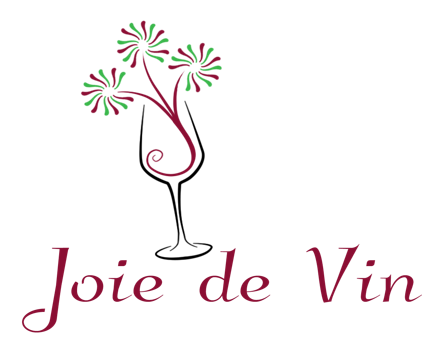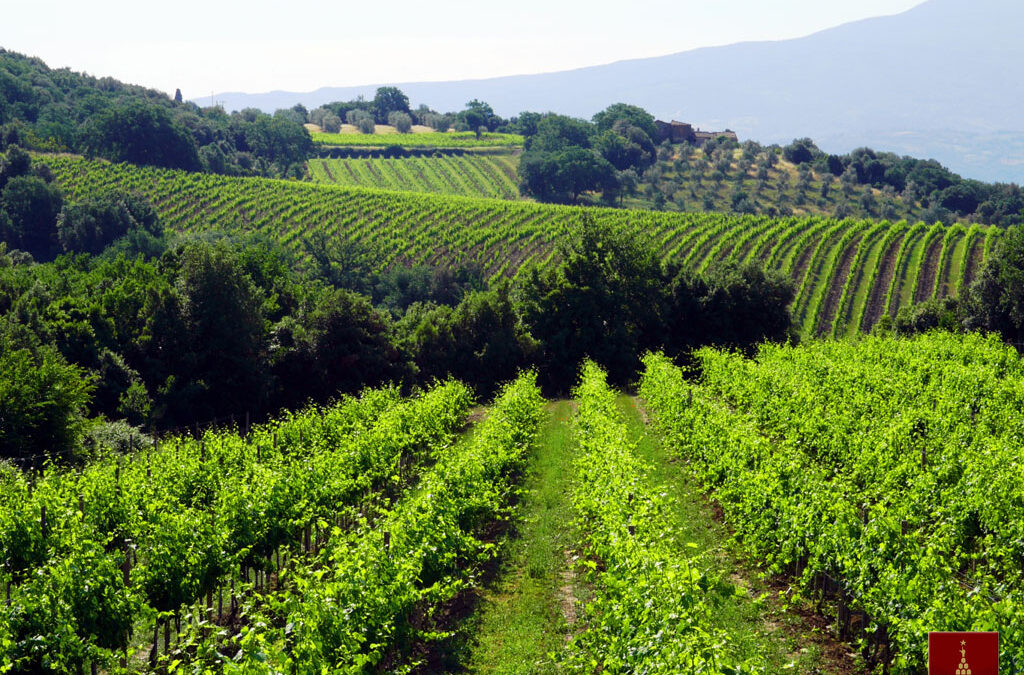Organic wines and winemaking is on the rise in Italy. The country is currently the world leader in percentage of acres dedicated to organic wine grapes, accounting for 26% of the world’s organically farmed vineyards.
In Europe, wineries must abide by a set of regulations to be certified ‘Green Organic’ This includes a ban on synthetic chemicals and genetically modified organisms (GMO’s). Growers use grass between rows instead of using herbicides. They use a natural copper-sulfur mix to fight fungal disease.

Because of a dispute between the European Union and United States over the amount of allowable sulfites in organic products (Europe allows up to 150 ppm, US must limit to 10 ppm), European wines that are certified organic by the EU cannot use that term on their US labels. Instead, you will likely see the term ‘made with organic grapes.’
In addition to a commitment to organic production, there is a growing movement in Italy toward certification of ‘sustainable practices’ that safeguard the environment, lower carbon, and water footprints. A consortium of private and international institutions is currently creating standards to officially regulate the ‘certified sustainable’ designation.
Italian Organic Wine Producers
Several Italian producers to look for if you want to sample Italy’s commitment to organic and sustainable wines are:
Tuscany
One of Tuscany’s most famous estates – Fontodi. Located in the heart of Chianti, they make full bodied red wine out of the Sangiovese grape. Try their Chianti Classico Vigna del Sorbo Gran Selezione for a bold, structured, and complex ageable red wine.
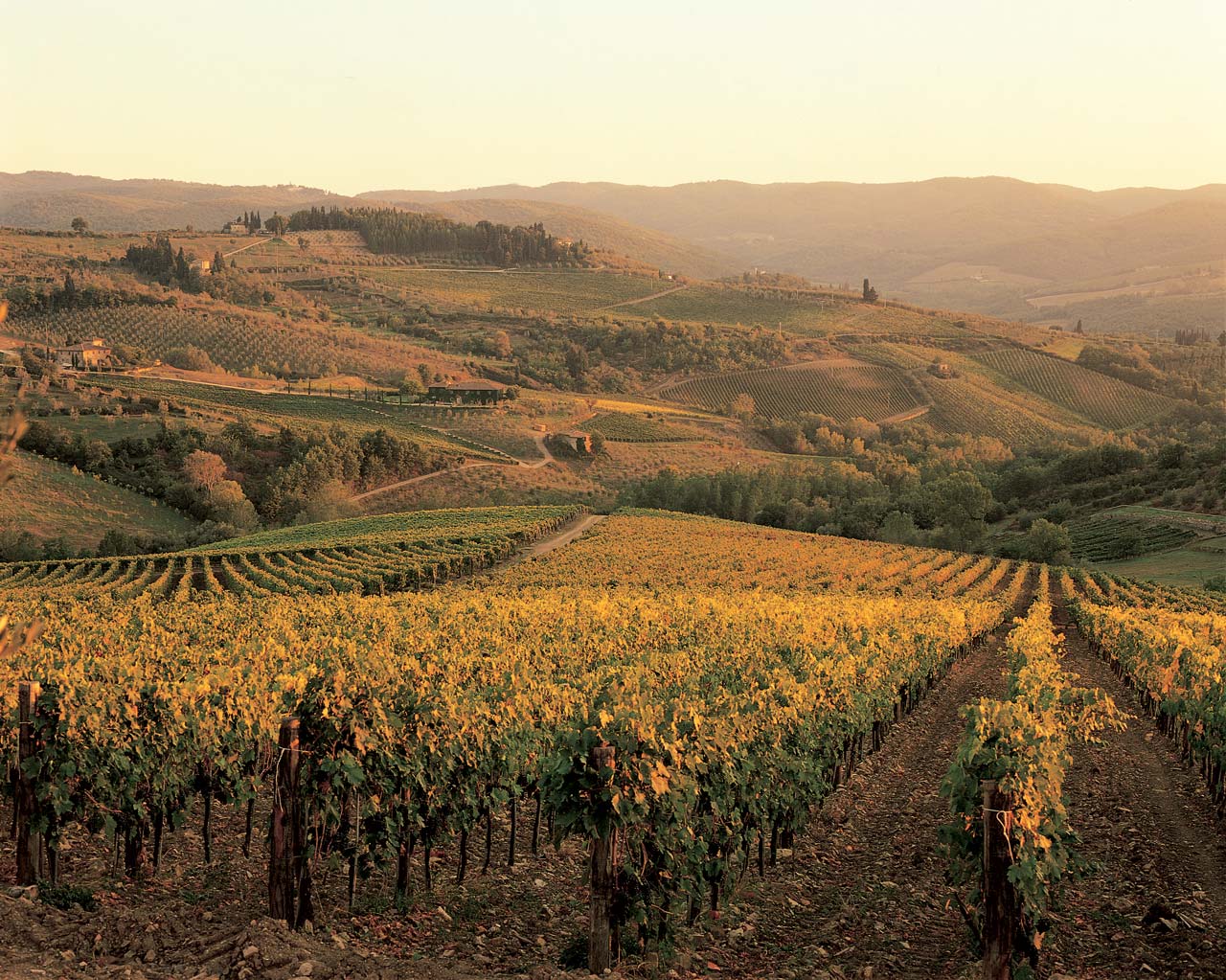
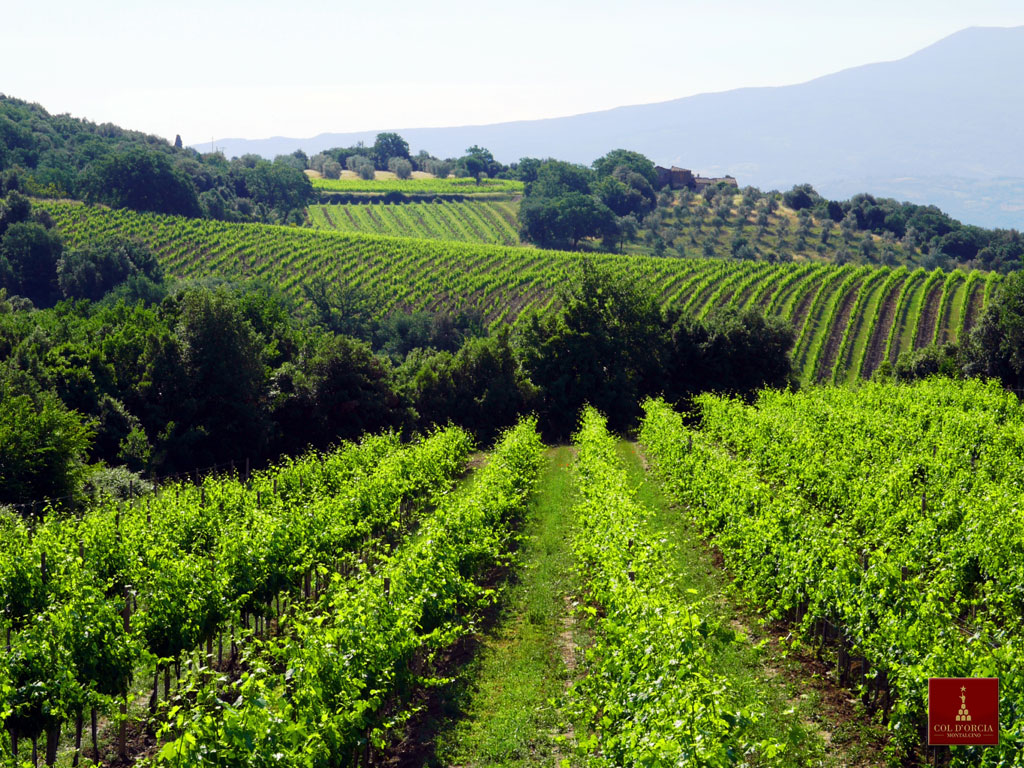
Brunello di Montalcino
Col d’Orcia is one of Montalcino’s pioneers, making exceptional Sangiovese since 1958. They were converted to organic agriculture methods and became organically certified in 2013. Their single vineyard Poggio al Vento is an exceptional example of sophisticated wine made with an emphasis on the importance of vineyard husbandry.
Vino Nobile di Montepulciano
Salcheto, an estate pioneering in growing Sangiovese using organic, sustainable, and biodynamic farming and winemaking, became certified organic in 2005. They ferment with native yeasts. They never add sulfites during fermentation. They have drastically lowered their carbon and water footprints.
Their wines are fresh, fruity and suitable for long aging.
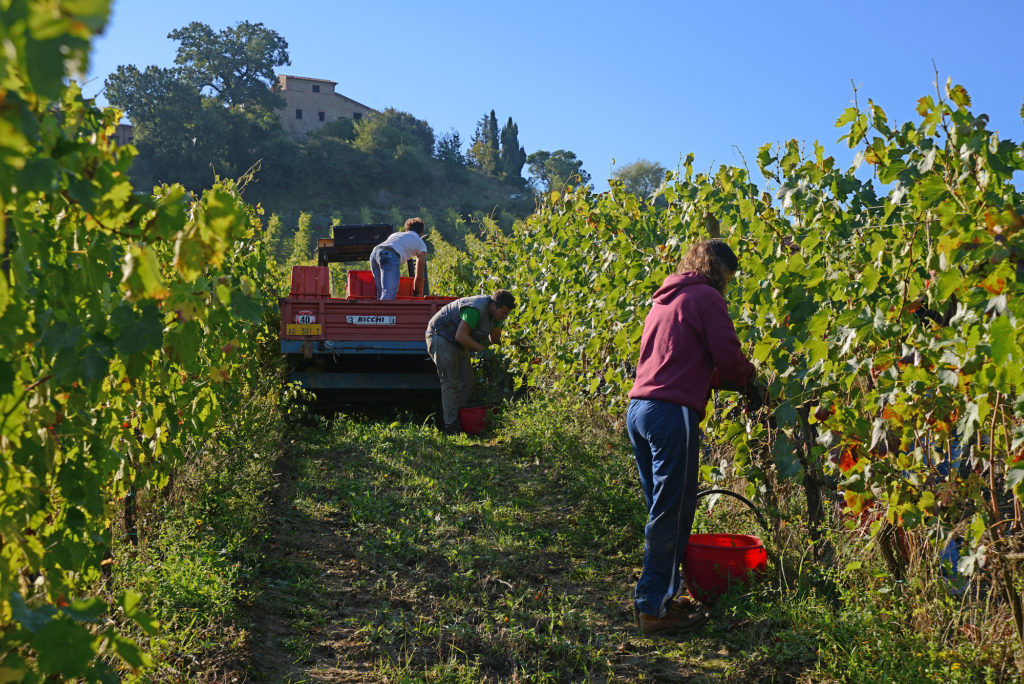
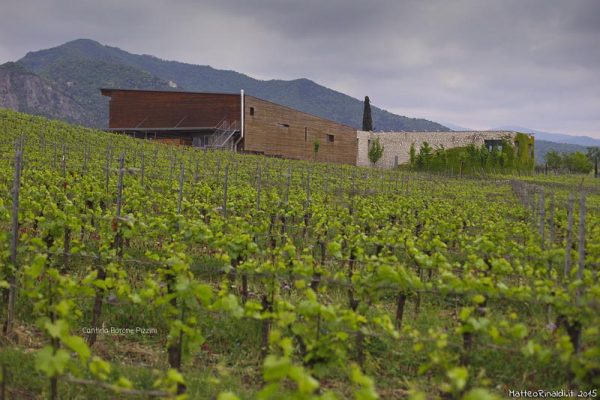
Franciacorta
In the Lombardy region of Italy Barone Pizzini, producers of elegant and age worthy metodo classic sparkling wines began switching to organic visiculture in 1998. Their winemaker, Silvano Brescianini attended a seminar and realized the anti-fungal chemicals being sold there contained known carcinogens. Brescianini immediately began to phase out use of chemicals. Now almost 70% of Franciacort’s producers are certified organic.
Look for these producers or a statement of ‘Made with Organic Grapes’ on labels of Italian wines to support these practices.
